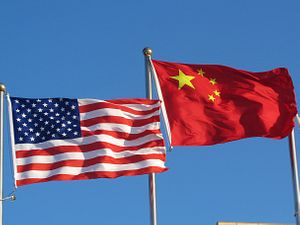On Wednesday, the United States and China will convene the first-ever Diplomatic and Security Dialogue (D&SD) between top diplomatic and defense officials in Washington, D.C. The meeting, established after U.S. President Donald J. Trump’s summit with Chinese President Xi Jinping in April, will cover a range of bilateral, regional, and global issues of concern, and is similar in framing to a two-plus-two dialogue.
Secretary of State Rex Tillerson and Secretary of Defense Jim Mattis will represent the United States and State Councilor Yang Jiechi and Gen. Fang Fenghui, chief of the People’s Liberation Army’s Joint Staff Department, will represent China. According to a statement released by the U.S. Department of Defense and the State Department, the dialogue will seek to “expand areas of cooperation while narrowing differences on key diplomatic and security issues.”
Neither side has released any official agenda to date, but issues on the agenda will likely include North Korea’s ballistic missile and nuclear program, regional and global terrorism, maritime tensions in the South China Sea, and bilateral military-to-military cooperation. According to Reuters, North Korea will almost certainly dominate the bilateral agenda.
In May, following multiple ballistic missile tests, U.S. President Donald J. Trump took to Twitter to note that “North Korea has shown great disrespect for their neighbor, China, by shooting off yet another ballistic missile,” adding that “China is trying hard!” Mattis, at the Shangri-La Dialogue in Singapore, added that North Korea was the “most urgent” threat to U.S. interests. Trump and Xi reportedly discussed the North Korea issue at length at their first summit.
The S&SD also comes after the Trump administration carried out its first freedom of navigation operation in the South China Sea, drawing an angry reaction from China. A Chinese foreign ministry spokesperson said that the operation “undermined China’s sovereignty and security interests and is highly likely to cause untoward incidents in the waters and airspace.” “China is strongly dissatisfied and firmly opposed to this,” the spokesperson added.
The D&SD is part of what Trump and Xi have dubbed the U.S.-China Comprehensive Dialogue, which succeeds the U.S.-China Strategic and Economic Dialogue, the final iteration of which was held in 2016 under the Obama administration. According to Tillerson, the Comprehensive Dialogue has “four pillars,” one of which is the D&SD. The others include a comprehensive economic dialogue, a law enforcement and cybersecurity dialogue, and a social and cultural issues dialogue.

































